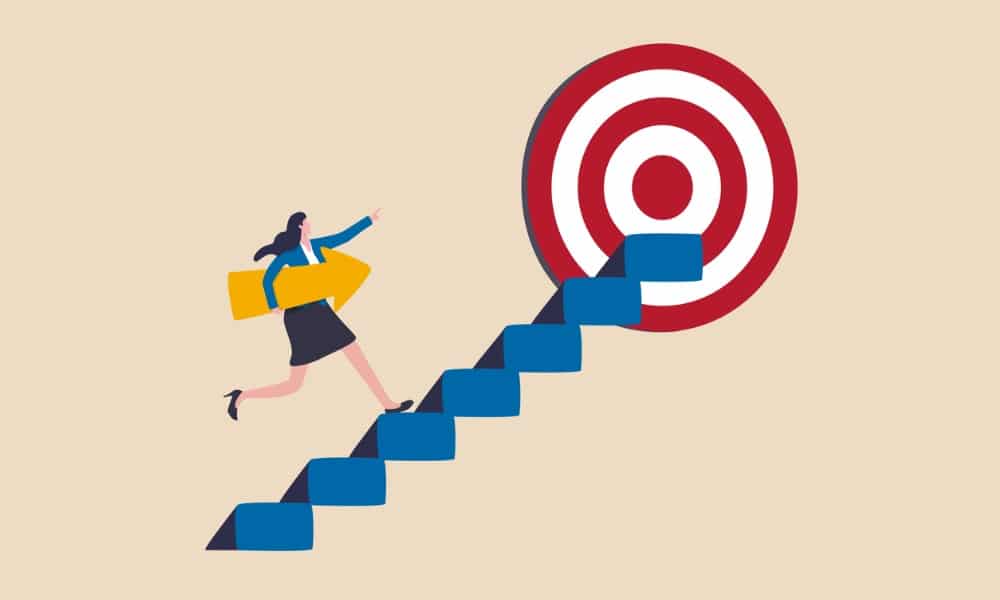The Achiever: Working Hard or Hardly Living?
Stage four of vertical development, the Achiever, is defined by productivity, controlling outcomes, and burnout.
Key Takeaways:
- Achievers identify with the Western culture ideal of working hard, being productive, and improving outcomes
- Qualities of Achievers include their collaboration skills, drive, and outcome-driven perspective
- Limitations of Achievers include getting burned out quickly, being emotionally unavailable, and taking too much personal responsibility for outcomes
- In today’s workforce, Achievers may make great project managers working in discrete timeframes
Vertical development differs from horizontal development in that you can’t simply collect skills and competencies to advance as a leader. Instead, developing vertically allows leaders to take an increasingly inside-out approach to work and leadership, which means understanding one’s values, how they relate to other people, and how to effect transformational change.
There are seven stages of vertical development: Opportunist, Conformer, Expert, Achiever, Redefining, Strategist, and Alchemist. This post is all about the fourth stage: the Achiever. Achievers have strengths like efficiency and hard work but often get burned out after pushing themselves too hard.
What is the meaning of Achiever?
The Achiever stage is a developmental answer to the Expert stage, as is each incremental change within vertical development. Experts may know everything and think they’re the smartest person in the room, but they’re not always getting the desired results. They tend toward being solo operators and struggle with collaboration. Achievers realize that if they work well with others, they’ll have a much more significant impact.
This stage is most identified with Western business culture. Achievers are the ideal employee in terms of productivity, efficiency, and hard work, and these values drive them. Western society and values reinforce the thinking that drives this stage.
All the “conventional” stages – Conformer, Expert, and Achiever – are rational, concrete stages of vertical development. These individuals are uncomfortable with the abstract. The logical or rational is the highest form of knowing for Achievers, whereas other forms of knowing start to come online in later stages. Body, intuition, and emotions take on more validity as sources of information.
Western culture has a preference for the concrete and rational, which is right where the Achiever sits with their work values. Achievers believe they’re in control and can create anything they want to create. They want to control outcomes and believe they are, in fact, in control.
Phrases Achievers might say: “Onward and upward.” “Be objective.” “Let’s agree to disagree.” “Keep going.”
Qualities of Achievers
Achievers are able to draw on their expertise and invite other people to give their perspectives, which is a significant moment of growth after the Expert stage. That collective input helps them develop better solutions that lead to better outcomes.
Achievers also loosen their hold on their need to be the person who has the answer to everything. There’s more inclusion and more coordination. They gain the ability to direct other people and foster collaboration and teamwork.
Even still, Achievers have a high degree of independence. They come to work with an “I can” attitude and are very capable. Not only can they control outcomes, but also their destiny, choices, and attitudes. They don’t view themselves as helpless or as victims.
Achievers want things to improve and believe they can better themselves with hard work. They can see the systems they’re embedded in and think strategically. Their biggest fear is not being able to achieve what they want, so they’re very effective, focused workers.
Experts tend to be focused on a “right” way of doing things. They think, “This is how we’ve always done it.” The Achiever starts to see other options, recognizing that the way it’s always been done is just one way to do something, and they’re willing to try different ways of getting to the outcome. Achievers believe solutions can be found, and that a rational, scientific approach will work.
Achievers are interested in feedback about themselves and may even ask for it. They can handle constructive feedback more effectively than Experts, especially when the feedback helps them reach their goals in some way.
Limitations of Achievers
The most significant limitation of the Achiever stage is burnout. Exhaustion within the work setting is common here. Achievers believe anything is possible and want to improve everything to the extent that they’ll run hard and fast until they’re completely burned out. The sense of never being done (and getting tired of feeling that way) compels them to proceed to the next stage.
Achievers are associated with over-responsibility and an over-reliance on rational thinking. Their internal world and relationship with themselves is growing, and yet they still subscribe to outside-in thinking.
People in this stage aren’t often attuned to their emotional lives. Experts and Achievers have more trouble identifying and acknowledging their emotions. It’s uncomfortable to own them. Emotions are less relevant and helpful than more rational approaches.
Another limitation of the Achiever can be an over-identification of responsibility for outcomes. If things don’t go the way they should, they take full responsibility. They don’t see that sometimes things happen outside of their control. Achievers blame themselves and think they could have worked harder. They “should” have done things differently.
Achievers are able to see a bigger picture than Experts, and can architect outcomes from this place, but visionary or strategic thinking is not a towering strength yet. They may not be able to inspire and motivate others. They can make good managers since they’re focused on efficiency and can collaborate with others, but they’re not yet full-capacity leaders.
Where Achievers fit into today’s businesses
Achievers are focused on getting short- and medium-term results. While they may not make the best leaders, they do add value to organizations and we often see them in leadership positions. Just because someone is in a leadership position doesn’t necessarily mean they’re in the later stages of vertical development or that they ever will be. This gets to the question of fit between the role and a person’s stage of development.
Short-term thinking can be very effective in certain settings. For instance, Wall Street tends to have a very short-sighted mindset about what success looks like.
People who are able to reach later stages can still see those short-term goals, but they also bring in big-picture thinking that can drive transformational change, not just the incremental change that the Achiever may be able to accomplish.
Achievers have great potential for entry-level managerial roles since they’re beginning to understand the importance of teamwork and the value of other people’s perspectives.
How to get started with vertical development
This world is only becoming more complex. These complexities require leaders who can increase their capacity, see the big picture, and create transformational change.
The Sparks Group is focused on a new approach to leadership development and executive coaching that centers around the stages of vertical development, which are more concerned with expanding your thinking than your resume.
Learn more about how vertical development can transform your business’s leadership team. Reach out to The Sparks Group to set up a 30-minute discovery call.

